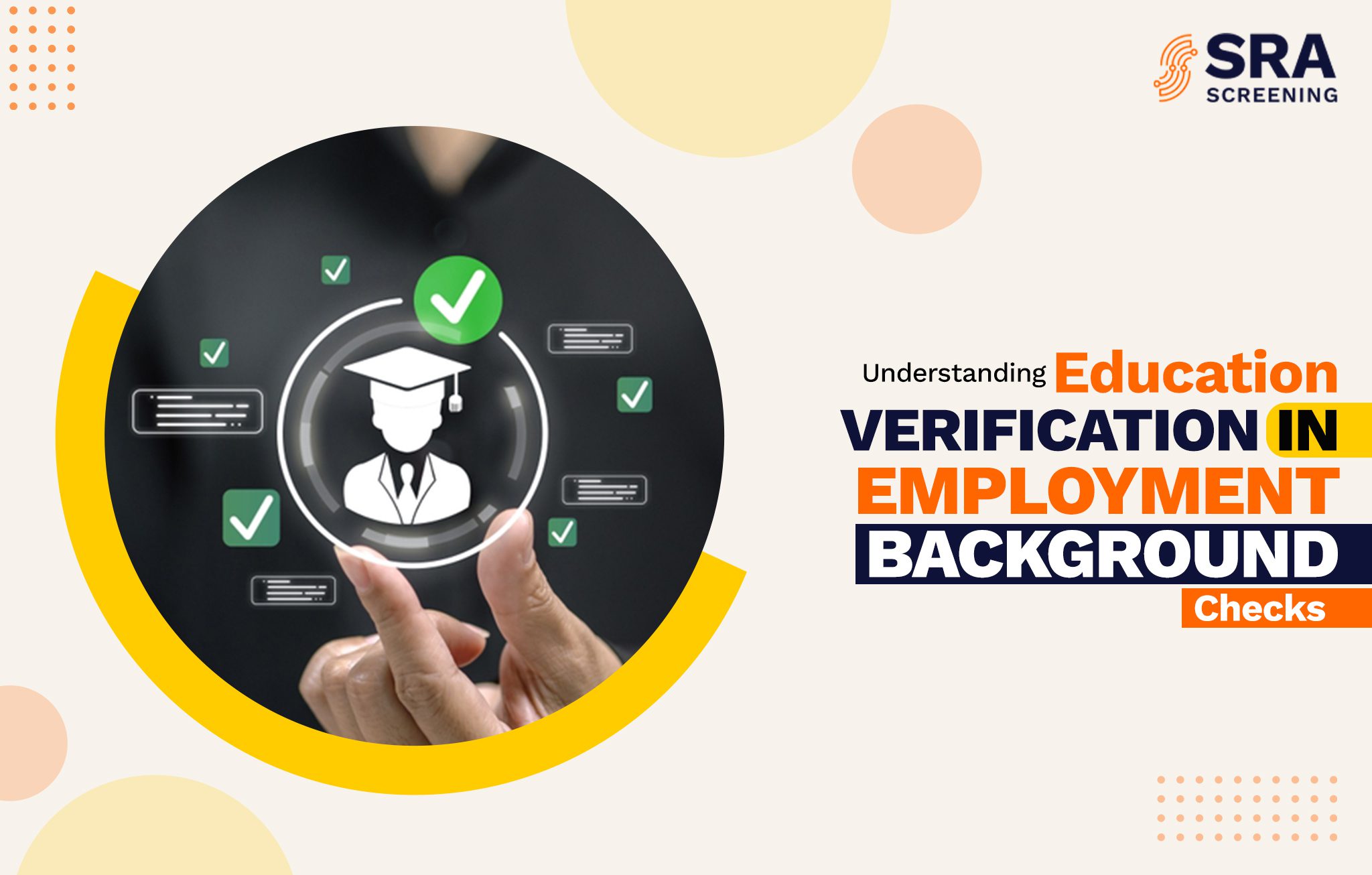
When hiring new employees, companies often focus on experience, references, and skills. However, one critical component of a thorough background check is an education verification. As industries increasingly rely on specialized knowledge and technical expertise, confirming the authenticity of academic credentials helps protect organizations from risk, strengthen workforce integrity, and maintain public trust.
Education verification is the process of confirming that a job candidate’s educational credentials are accurate and match what they’ve listed on their resume. This verification is typically conducted by contacting the educational institution directly or through an authorized database to confirm details such as:
Employers can verify a wide range of educational achievements, including high school diplomas, GEDs, degrees, and postgraduate qualifications. By validating these details directly with official sources, employers can ensure that all educational credentials are authentic and issued by legitimate, accredited institutions.
Why Education Verifications Matter
Academic fraud is among the most prevalent forms of resume falsification. From fabricated degrees to unaccredited institutions offering illegitimate credentials, false claims can lead to costly hiring mistakes. A single misrepresentation, especially in specialized or regulated roles, can expose an organization to financial losses, reputational harm, or compliance violations. Education verification acts as a safeguard against such risks, ensuring every credential presented can be confidently validated.
For many positions, validating education isn’t just a preference; it’s a requirement. Industries like healthcare, engineering, finance, and education rely heavily on candidates with verified academic credentials. Confirming education ensures employees have the knowledge and training required to perform their roles with competence, integrity, and accountability.
For regulated industries, educational verification is often a compliance requirement under federal or state mandates. Neglecting to verify credentials in sectors like healthcare, financial services, or education can lead to penalties, loss of licensure, or litigation. Implementing consistent verification practices demonstrates due diligence and supports adherence to regulatory and audit standards.
A company’s credibility begins with the integrity of its people. By consistently verifying educational backgrounds, organizations promote fairness in hiring, ensure internal equity, and preserve the trust of clients, stakeholders, and the public. Verified education is a cornerstone of ethical hiring and a reflection of a company’s commitment to excellence.
Work with a background screening provider that has experience verifying academic credentials through reliable, secure sources. A knowledgeable partner can streamline the process, reduce administrative burden, and ensure every verification meets accuracy, compliance, and privacy standards.
Before initiating any verification, always secure written consent from the candidate. Compliance with the Fair Credit Reporting Act (FCRA) is essential to maintain transparency and protect applicants’ rights.
Whenever possible, confirm records directly with the issuing institution or recognized clearinghouses like the National Student Clearinghouse. Avoid relying solely on documents provided by candidates, which may be altered or forged.
Ensure the academic institution is accredited by a legitimate accrediting body. Verifying accreditation status is a critical safeguard against fraudulent or unrecognized schools, which can undermine hiring credibility and compliance efforts.
Establish a uniform policy for education verification across all roles, specifying which degrees or certifications require validation. Consistency promotes fairness, improves compliance readiness, and strengthens your organization’s defense during audits or disputes.
Most education verifications are completed within 48 to 72 hours, depending on institutional responsiveness and record availability. Older or international records may take longer, particularly when translation, manual confirmation, or archived records are involved.
For global employers, variations in educational systems and data privacy laws can complicate the verification process. An experienced screening partner can manage these differences effectively while maintaining ethical standards and compliance with international regulations.
Education verification is an essential part of making smart, responsible hiring decisions. It confirms that a candidate’s credentials are real, their qualifications meet your standards, and their achievements are earned, not just claimed. By maintaining a consistent, well-documented process and working with a trusted partner like SRA Screening, employers can protect their reputation, stay compliant, and promote honesty across their workforce.
In today’s workplace, where trust and credibility matter more than ever, education verification helps ensure that every hiring decision is based on truth, transparency, and confidence.
Education verification involves confirming a candidate’s academic background directly with the issuing institution or an authorized verification service. The process typically includes verifying the school attended, degree or credential earned, dates of attendance, and graduation details. SRA Screening handles this process securely and in compliance with privacy and FCRA requirements.
Employers can verify a wide range of academic achievements, including high school diplomas, college degrees, vocational training, and postgraduate education. In addition, SRA Screening can verify international education through accredited global databases and institutional partnerships to ensure authenticity across borders.
Turnaround times typically range from 24 to 72 hours, depending on the institution’s responsiveness and location. Older records or international verifications may take longer, especially when translation or manual record retrieval is required.
No. Education verification confirms academic credentials such as degrees and diplomas, while professional license verification confirms active licenses or certifications issued by regulatory or professional boards.
DISCLAIMER: This blog post is for informational purposes only and is not legal advice. Please consult a qualified professional before making any decisions.
The FCRA is enforced federally, but states may also implement it and have their own consumer reporting laws. You may have additional rights under state law. For more information, contact your state or local consumer protection agency or your state attorney general.
When hiring new employees, companies often focus on experience, references, and skills.
Today’s hiring environment demands more than finding skilled candidates — it requires
Get updates, exclusive offers, and insights straight to your inbox.
Key Resource Hub
Your Questions Answered
Editorial team insights